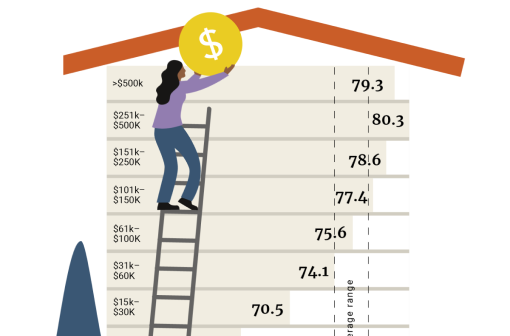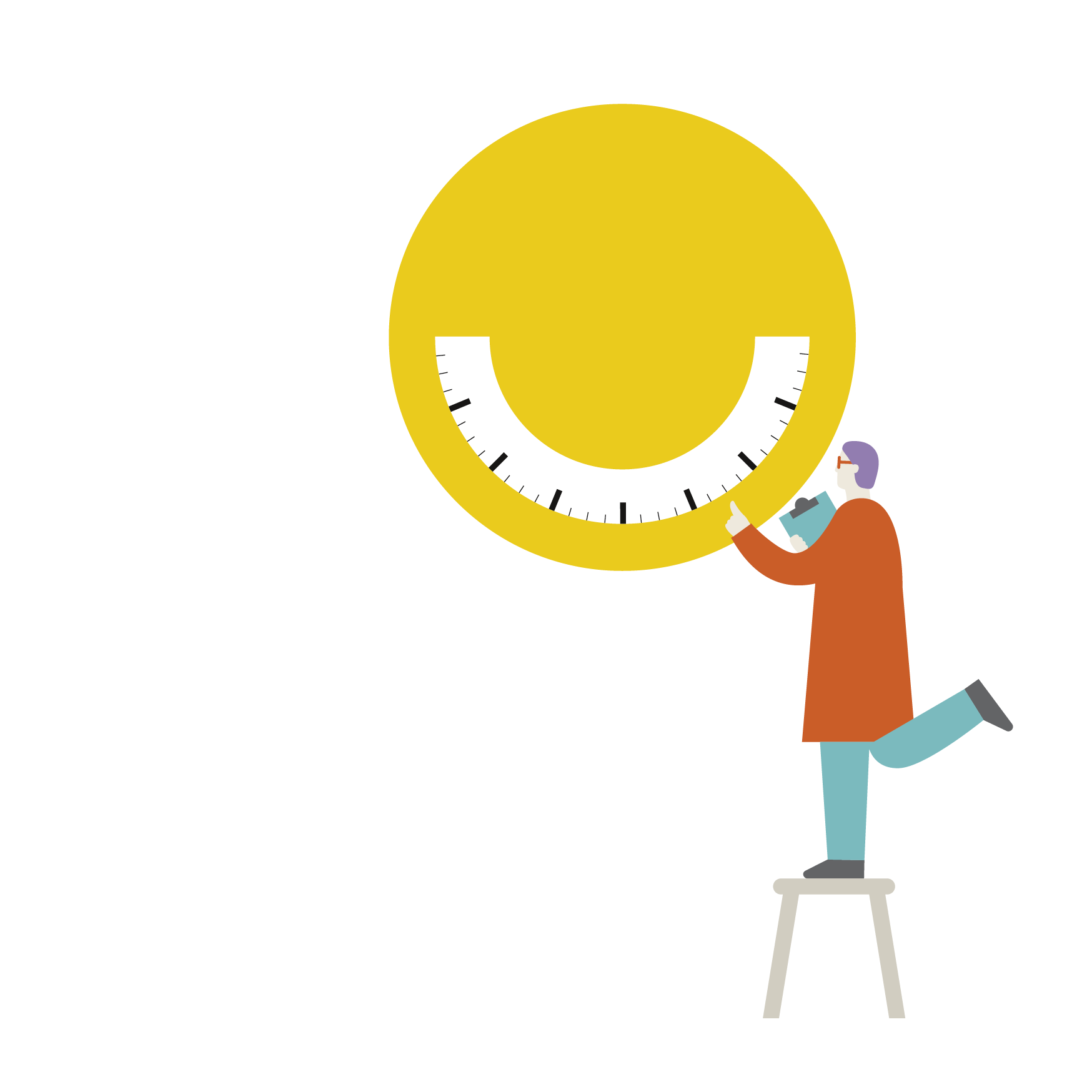“The Australian Unity Wellbeing Index has built a detailed picture of our collective sense of wellbeing, and the impact on social issues and events”—Rohan Mead, CEO of Australian Unity.
Key points
- For the past 20 years, the Australian Unity Wellbeing Index has been monitoring the personal and national wellbeing of Australians personally
- The Australian Unity Wellbeing Index has surveyed more than 65,000 Australians across all walks of life, and is the most enduring study of its kind
- The research shows there are numerous health, professional, family and economic benefits that we can attribute to greater wellbeing
From mental health to financial resilience, wellbeing has been the hot topic of the late 2010s and early 2020s—and the Australian Unity Wellbeing Index, undertaken in partnership with Deakin University, is one of the most enduring and credible studies of this subject in Australia. Exploring more than just “wellness”, it delves into how we feel about ourselves personally, at a community level and as a nation.
With 20 years of research under our belt, here’s what we’ve learnt so far.

Key takeaways from 20 years of research
Rohan Mead, CEO of Australian Unity, says the Australian Unity Wellbeing Index has “built a detailed picture of our collective sense of wellbeing, and the impact on social issues and events”.
Over the past 20 years, Australian Unity and Deakin University have conducted 37 nationally representative surveys with more than 65,000 Australian adults across the country. Australians in metropolitan, regional and rural communities have all been surveyed to build a detailed picture of our how we feel.
Rohan explains that it covers both personal and national wellbeing: “It tracks how we feel about our relationships, finances and our broader purpose in life. So, too, we have gauged the nation’s satisfaction with economic, business and social conditions, government, national security and the environment.”
Associate Professor Delyse Hutchinson, the lead researcher of the Australian Unity Wellbeing Index , says personal wellbeing in Australia has remained relatively stable over this entire 20-year period. Indeed, the recent 2020 survey shows personal wellbeing scores remained in the normal range despite Australia’s devastating bushfire season and the COVID-19 pandemic.
This resilience is predominantly a result of two key forces, she says.
“First and foremost, we live in a very good community—we have a fundamentally civil society that looks after its citizens and provides health and other services, and financial support to those in need,” Delyse says.
“Secondly, we see the power of a process called homeostasis. As we experience the ups and downs of life, a background mood—called Homeostatically Protected Mood (HPMood)—eventually wins out and pulls us back to a baseline of contentment. Our fear, joy or sadness might be strong, but homeostasis means it’s short-lived, and we eventually return to HPMood.”
National wellbeing, on the other hand, doesn’t have this same anchor point, so we tend to see “ebbs and flows” depending on what's going on.
During the last 20 years, key events affecting national wellbeing have included the global financial crisis, bushfires and COVID-19—but, intriguingly, despite the adversity faced by Australians during the January bushfires and COVID-19, national wellbeing rose in 2020 to the highest levels in history of the Australian Unity Wellbeing Index.
While we don’t know the exact reason for this, it seems likely that the availability of financial support (such as the JobKeeper payment), a feeling that Australia was “doing better” than other countries, and a sense of rallying around as a community all impacted our satisfaction with our nation.
Evaluating our personal wellbeing
To truly understand individual wellbeing, the Australian Unity Wellbeing Index measures seven core “domains” of wellbeing to assess people’s satisfaction with their lives.
These are:
- Personal relationships: The quality of our relationships with family, friends and significant others.
- Achieving in life: Finding a purpose, direction or meaning in our life.
- Standard of living: Having enough money or financial control to live and enjoy life.
- Health: Our physical and mental state.
- Connectedness to the community: A sense of belonging and connection to the people around you.
- Personal safety: How we feel about our safety (and how this translates into our communities and our nation overall).
- Future security: How we feel about our future in terms of job security, health, the environment and other factors.
Over the past 20 years, we’ve found that three of these domains—personal relationships, achieving in life and standard of living—play a particularly important role in our wellbeing, leading us to dub them “the golden triangle of happiness”.
But while our satisfaction with our finances has increased over time (and is currently at its highest point in 20 years) and our satisfaction with relationships has remained relatively stable, there has been a small decline in our satisfaction with achieving in life, which becomes more significant among people aged 18 to 45. In our focus on achieving financial success during our prime earning years, have we sacrificed the things that give our lives purpose?
More broadly, the results from 20 years of the Australian Unity Wellbeing Index—as well as extensive research from around the world—confirm that individual wellbeing matters a lot, with Delyse pointing to numerous health, professional, family and economic benefits that we can attribute to greater wellbeing.
“If you have better wellbeing, you're more likely to have better physical and mental health, and decreased risk of disease, injury and illness. People have better immune functioning when their wellbeing is higher—they're more likely to recover from illness if they do get sick, and they’re more likely to have increased longevity.”
The effect of good personal wellbeing also extends even further, with wellbeing having a positive impact on areas like work and community involvement.

What about national wellbeing?
While personal wellbeing reflects our satisfaction with important factors within our own lives, national wellbeing is based on our satisfaction with key conditions within our nation, including the economic situation, government, social conditions, business, the environment and national security.
Although we’ve seen ebbs and flows in Australians’ overall national wellbeing over the past 20 years, the performance of individual domains has been mixed. While satisfaction with national security, the state of society and the environment has increased in the last 10 years, satisfaction with the economy and business has decreased.
Satisfaction with the government has been particularly volatile over the past decade, reflecting the parties’ ever changing leadership and a lack of public confidence in our politicians. But while there’s been a significant decline in satisfaction since 2010, the government satisfaction score jumped dramatically in May 2020 to hit its highest point in the history of the Australian Unity Wellbeing Index. Although this may have since changed, the score likely reflects the largely positive perception of the Morrison government’s performance during the first wave of COVID-19.
Wellbeing research and the real world
While the research is fascinating in its own right, measuring and tracking our individual, community and national wellbeing can also help us to reap the practical benefits of improved wellbeing.
“Having a scientifically based understanding of wellbeing within the Australian context and a national monitoring system to track changes in wellbeing in relation to things like national events, and among specific groups in the community, can help advance research and shape policy in Australia,” says Delyse.
Public health actions, community interventions, educational programs and other efforts to bolster wellbeing can all be informed by the results of the research. One notable real-world example? As a result of findings from the Australian Unity Wellbeing Index, Australian Unity developed an app to help promote wellbeing in carers, a group that the research tells us has markedly lower wellbeing than the average population.
Australian Unity members can also harness 20 years of wellbeing research by completing the Advanced Wellbeing Assessment, an online tool that helps people gain powerful insights into their wellbeing.
Nancy Huang, Australian Unity’s Chief Medical Adviser, says the tool can help us identify wellbeing trends, compare how we fare with others in our age group, and “reflect and see a bigger picture”.
“Using it over time, we can see how we are changing in the different domains, create some space to think through what challenges have surfaced, and how we can draw on our past experiences or skills to plan, re-charge or energise our focus in these domains,” she says.
For those with low wellbeing scores, Nancy has these practical tips:
- Establish a trusted and ongoing relationship with a family doctor as a vital foundation for self-care.
- Reinforce good habits such as washing hands, cleaning teeth, eating fruit and vegetables every day, exercising regularly, maintaining good sleep routines and taking your medicines as prescribed.
- Make time to nurture and maintain connection with family and friends.
- Be kind and compassionate towards yourself.
- Plan time out, whether it’s a quick meditation break or a holiday away.
- Learn to reach out and ask for help.
Wellbeing is a complex and nuanced topic, but many things are clear after 20 years of research. In particular, we’ve seen that our sense of wellbeing in Australia is resilient—and, as we learn more about wellbeing and understand it better, there’s even more opportunity to improve.








